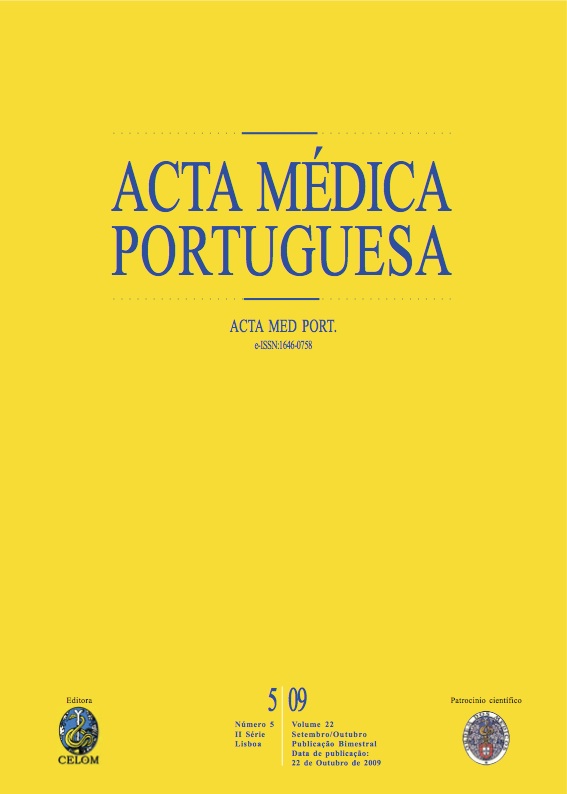Enxaqueca.
DOI:
https://doi.org/10.20344/amp.1713Resumo
Migraine is one of the most common neurological disorders, with a significant social and economic impact. It is characterized by a constellation of symptoms including headache, nausea or vomiting, intolerance to sensory stimuli and, in 20% of patients, transient neurological signs (the aura). In this article we review new advances on its pathogenesis, based on clinical and experimental data. Recent evidence has shown that, contrary to previous beliefs, migraine is primary a neurogenic disorder. Genetic studies have associated some rare forms of migraine to the mutations of genes that code ionic channels, suggesting that trans-membrane ionic imbalance is a possible pathogenic mechanism for the attacks. Genetic factors may modulate the vulnerability to suffer the attacks in response to environmental/internal triggers. Direct stimulation of the arterial wall is not a provocative factor for the attacks, contrary to stimuli that act primary on the nervous system. It has also been shown that individuals with migraine have an enhanced cortical excitability and lack of habituation. Functional neuroimaging studies have provided evidence that during the attacks there is an abnormal metabolic activity in the cortex and the brainstem. As waves of metabolic depression travel slowly across the cerebral cortex (cortical spreading depression), trigeminal nerve terminals surrounding meningeal arteries are stimulated eliciting a trigemino vascular reflex that explains subsequent vascular changes and headache. Drugs that stabilize nerve membranes and decrease neuronal excitability are effective in migraine prophylaxis. This recent evidence can be used in experimental models to test drugs aimed to new targets, developed to inhibit the cascade of events associated to migraine at different points, based on more fine grain knowledge of migraine pathogenesis.Downloads
Downloads
Como Citar
Edição
Secção
Licença
Todos os artigos publicados na AMP são de acesso aberto e cumprem os requisitos das agências de financiamento ou instituições académicas. Relativamente à utilização por terceiros a AMP rege-se pelos termos da licença Creative Commons ‘Atribuição – Uso Não-Comercial – (CC-BY-NC)’.
É da responsabilidade do autor obter permissão para reproduzir figuras, tabelas, etc., de outras publicações. Após a aceitação de um artigo, os autores serão convidados a preencher uma “Declaração de Responsabilidade Autoral e Partilha de Direitos de Autor “(http://www.actamedicaportuguesa.com/info/AMP-NormasPublicacao.pdf) e a “Declaração de Potenciais Conflitos de Interesse” (http://www.icmje.org/conflicts-of-interest) do ICMJE. Será enviado um e-mail ao autor correspondente, confirmando a receção do manuscrito.
Após a publicação, os autores ficam autorizados a disponibilizar os seus artigos em repositórios das suas instituições de origem, desde que mencionem sempre onde foram publicados e de acordo com a licença Creative Commons









